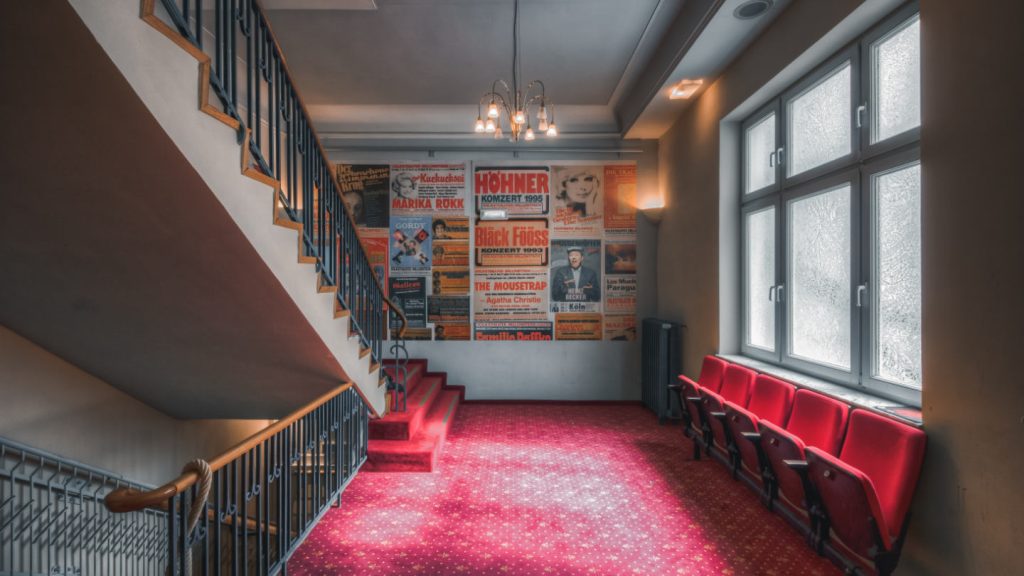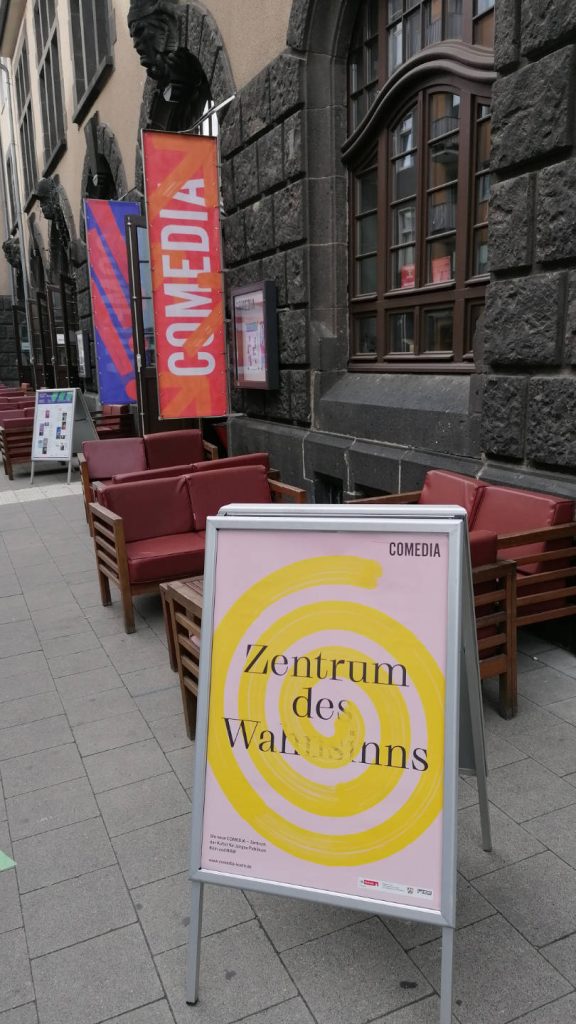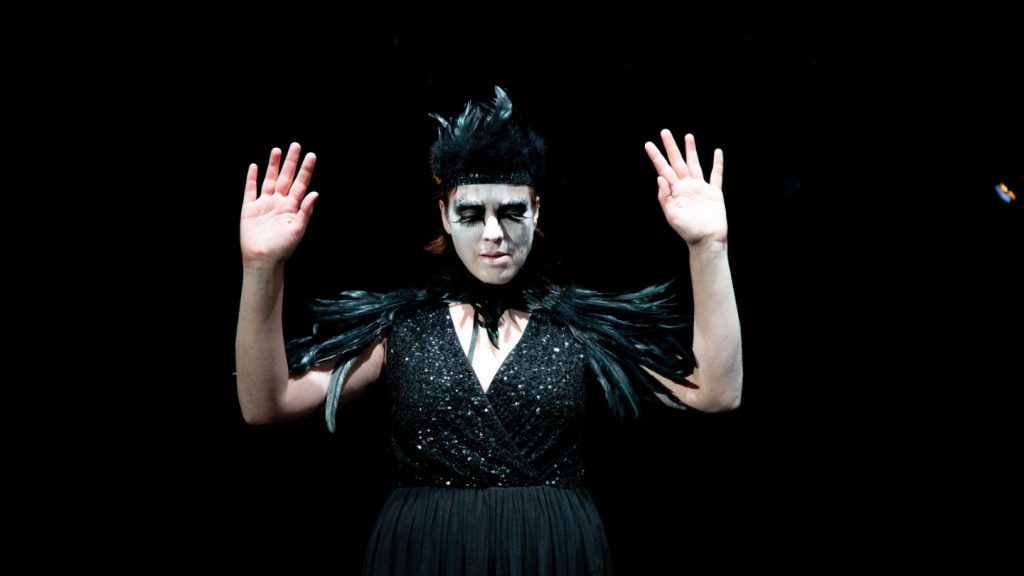Volksbühne am Rudolfplatz – Where local legend Willi Millowitsch once performed

Having come through two world wars unscathed, Colonia Haus (originally opened as a ballroom in 1905) is the oldest surviving theatre in Cologne. A listed building located on Aachener Straße, from 1936 to 2018 it housed the theatre of the Millowitsch family. Thanks to the performances broadcast live on German television from the theatre, now known as Volksbühne am Rudolfplatz, over a period of more than 40 years, both the theatre and the name Millowitsch are famous throughout Germany.
Since 2015, the glorious art nouveau auditorium, which has a seating capacity of 405, has hosted various types of event, including comedy acts, readings, cabaret and musicals. Our tip: the KölnerMusicalCompany productions.
Volksbühne am Rudolfplatz, Aachener Str. 5, 50674 Cologne
Senftöpfchen-Theater – pungent satire and all-round entertainment

This place launched the careers of a whole host of German satirists. The name Senftöpfchen-Theater translates as “mustard pot theatre” and the acts on the bill are a little offbeat, quirky and pungent.
Founded by Fred and Alexandra Kassen in 1959, it rose to fame as Cologne’s first venue for satirical shows. Senftöpfchen delights audiences with a tongue-in-cheek, stinging take on current events plus much more. In the 1970s, they launched new formats such as a famous chat show, satirical cabaret, flamboyant revues and light-hearted evenings of song.
This gem is still run by the founders’ family, with daughter Alexandra Franziska now at the helm, continuing the tradition of all-round entertainment.
Senftöpfchen-Theater, Große Neugasse, 50667 Cologne
Comedia-Theater Köln – Theatre for the younger generation

This independent children’s and youth theatre started life in the southern city of Würzburg in 1974 before moving to Cologne three years later. Since the 2009/2010 season, its performances have been staged in two theatre halls at a cultural centre for children, housed in a former fire station.
Comedia actually combines theatre for young audiences, satire shows and a “drama lab” under one roof. The repertoire consists of in-house productions, reworkings of famous children’s and teenagers’ literature and performances by guest artists from the realms of comedy, cabaret, dance, spoken word and music.
Comedia-Theater, Vondelstr. 4-8, 50677 Cologne
Studiobühne Köln – A creative forum for the student community

Studiobühne has been around for more than 100 years, making it Germany’s oldest university theatre. It was given fresh impetus in the 1960s and early 1970s thanks to the culture of debate that developed during that period. Since 1974, the “studio theatre and film workshop” has received funding from the University of Cologne as an open and independent cultural centre belonging to the University.
Students from all faculties can take part in the theatre’s free courses in drama, film and photography. It stages numerous productions of its own as well as co-productions with various independent groups from Cologne. Our tips: the annual binational Theaterszene Europa festival and the Fünfzehnminuten festival featuring new talent from across the region.
Studiobühne Köln, Godesbergerstr. 10, 50968 Cologne
Theater im Bauturm – Where classics meet cabaret and experimentation

Diagonally opposite the more traditional Volksbühne am Rudolfplatz, things get experimental at this intimate courtyard theatre. It was set up by a group of actors, directors and appreciators of the arts in 1983 (in the Bauturm architects’ office building) as a non-profit organisation. Theater am Bauturm has been considered one of Cologne’s most innovative theatres ever since.
The repertoire encompasses both classics and contemporary dramas, humorous pieces and plays dealing with current political issues. They stage four to five of their own productions each season plus readings, cabaret, concerts and international guest performances. For post-theatre drinks, head to Café im Bauturm.
Theater im Bauturm e.V., Aachener Straße 24-26, 50674 Cologne

0 comments on “Upstaged: Cologne’s lesser-known theatres”